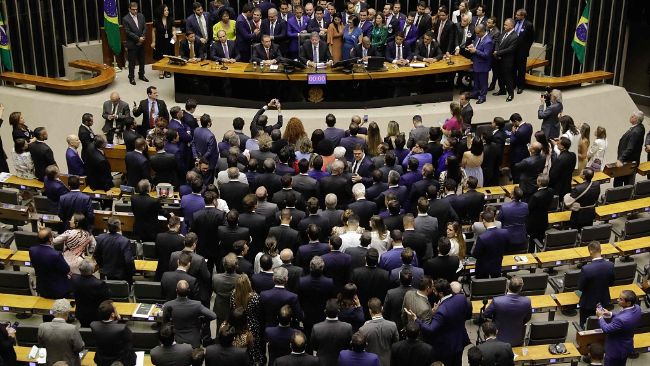Brazil is making significant strides towards regulating the rapidly expanding cryptocurrency market. The Brazilian Senate recently announced plans to conduct a public hearing on cryptocurrency regulation, highlighting the country’s commitment to updating its laws in line with the evolving digital economy. This initiative stems from a private member’s bill introduced by Senator Soraya Thronicke of the Podemos Party, aimed at regulating virtual assets services providers (VASPs) to ensure transparency and protection for Brazilian crypto users.
The upcoming public hearing, to be hosted by the Senate’s Economic Affairs Committee, follows a call from Senator Rogerio Carvalho of the Partido dos Trabalhadores (PT) party for a thorough consultation with experts and industry representatives before advancing any legislation. Carvalho emphasized the need for a detailed review of the proposed regulations to safeguard consumers and investors in Brazil’s rapidly growing crypto market.
Four key organizations have been invited to participate in the hearing, including regulatory bodies like the Central Bank of Brazil (BCB) and the Securities and Exchange Commission (CVM), along with industry groups such as the Brazilian Association of Cryptoeconomics (ABCripto) and the Brazilian Financial and Capital Markets Association (Anbima).
Senator Thronicke’s bill aims to address various aspects of the cryptocurrency industry, including the issuance, custody, and settlement of digital assets. The proposed legislation mandates that all cryptocurrency exchanges and brokerages operating in Brazil, including foreign-based platforms serving Brazilian residents, must obtain operating licenses to ensure the segregation of customer and company funds, enhancing transparency and reducing fraud risks.
Thronicke’s bill builds upon previous attempts to introduce similar regulations in 2020, 2022, and 2024, with a focus on placing increased control over VASPs to enhance accountability and oversight. The primary goal of the proposed regulations is to bring clarity and security to the sector, potentially reshaping the operations of cryptocurrency exchanges and brokerages within Brazil.
One of the key provisions of Thronicke’s bill is the requirement for cryptocurrency exchanges, including foreign platforms, to register with the National Register of Legal Entities (CNPJ), aligning crypto operations with traditional financial regulations in Brazil. This step aims to integrate the crypto sector into global financial market standards and enhance oversight of industry businesses to protect customer funds and prevent fraudulent activities.
Brazil’s adoption of cryptocurrencies has been on the rise, with approximately 12% of the population owning digital assets, ranking the country sixth globally in terms of crypto adoption. However, along with the growth comes challenges, including fraud cases and regulatory issues that have raised concerns among lawmakers and regulators, prompting calls for stronger regulations to protect users and investors.
Thronicke’s bill also includes provisions to ensure that foreign crypto platforms serving Brazilian residents comply with the country’s regulatory framework, preventing evasion of laws and enhancing user protection regardless of the platform’s location. This integration of foreign exchanges into Brazil’s regulatory system is expected to bolster the overall safety of the crypto market by enabling better monitoring and compliance with national standards.
Brazil’s regulatory progress in the cryptocurrency sector, coupled with initiatives like allowing employees to receive part of their salary in Bitcoin or other cryptocurrencies, reflects a balanced approach towards innovation and consumer protection. If passed, the proposed regulations could serve as a model for other countries seeking to regulate the cryptocurrency sector, solidifying Brazil’s position as a global leader in cryptocurrency adoption and regulation.

